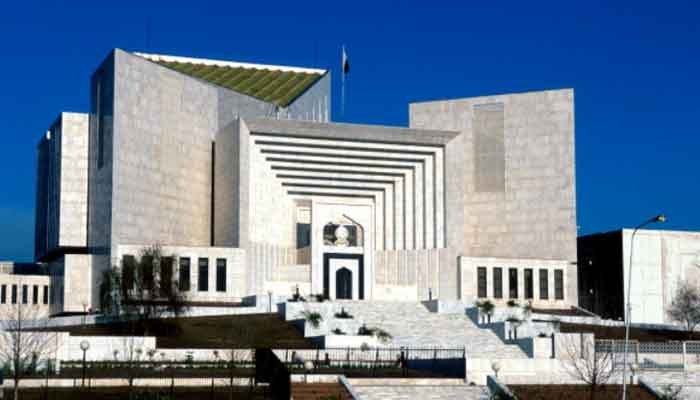Supreme Court Justice Manzoor Ali Shah has raised significant objections to the recent amendments made to the National Accountability Bureau (NAB) Ordinance in Pakistan. In his dissenting note, he has argued that military officers and judges should also be subject to NAB accountability and that after the legislative process, NAB law should prevail.
Justice Manzoor Ali Shah’s note comes in response to the majority decision in the Supreme Court regarding the NAB Ordinance amendments, which declared some provisions of the ordinance as void. The majority decision, led by former Chief Justice Omar Ata Bandial and Justice Aijaz-ul-Ahsan, ruled to declare parts of the NAB Ordinance (Amendment) Act 2022 as unconstitutional.
In his dissenting note spanning 27 pages, Justice Manzoor Ali Shah points out that the NAB law is equally applicable to all institutions, including military officers and members of the judiciary. He argues that after parliamentary approval of the amendments, NAB law should take precedence, ensuring that no one is above the law.
One of the key arguments in Justice Manzoor Ali Shah’s note is that the judiciary should have the authority to review legislation only when it violates fundamental human rights. He emphasizes that the role of the courts is not to challenge the wisdom of lawmakers but to protect the constitution and the rule of law. Reviewing legislation based on the interests of lawmakers or democracy undermines the principles of separation of powers.
Moreover, Justice Manzoor Ali Shah questions the majority’s failure to provide a valid reason for considering the NAB amendments as conflicting with fundamental rights. The prolonged hearing saw repeated questions raised regarding how the NAB amendments fundamentally contradict human rights. However, the dissenting judge contends that the majority decision failed to provide a satisfactory response to this crucial issue.
Justice Manzoor Ali Shah also notes that challenging legislation through the courts should not be the default response. He underscores the importance of mutual respect and tolerance among state institutions, especially when challenging tax evasion, money laundering, corruption, or the formation of offshore companies by members of parliament, public officeholders, or public servants.
The dissenting note is a significant development in the ongoing debate over the NAB Ordinance amendments in Pakistan. It underscores the importance of separation of powers, the role of the judiciary, and the need to balance democratic principles with accountability. As the judiciary’s role in reviewing the actions of the legislative and executive branches is questioned, it will continue to be a topic of significant public and political discussion in Pakistan.
While the NAB Ordinance remains a controversial and divisive issue, Justice Manzoor Ali Shah’s dissent provides a robust argument for the principle that no one, regardless of their position, should be beyond the reach of the law. The case highlights the intricate balance between democracy, accountability, and the rule of law in the context of Pakistan’s legal and political landscape.



